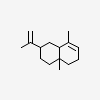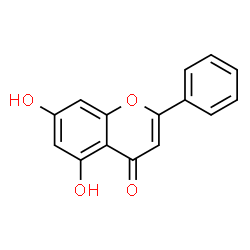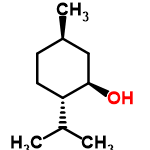Canada Goldenrod
(Solidago Canadensis)
The Canadian Goldenrod is found in both the Eastern Deciduous Forest and the Tall Grass Prairie. It is a very useful herb because of its widespread uses. For example, the Goldenrod can treat all burns with a poultice created from the roots of the plant. It can heal sore throats by chewing on the flowers and very slowly sucking the juice out. If you make a tea from the flowers you can treat diarrhea and also snakebites. The Goldenrod is an astringent herb used for the treatment of bleeding wounds of the skin. The saponins found in the Goldenrod plant have a fungicidal property and are effective against the Candida fungus. The compounds in the plant and the oil made from the plant, called phenolic glycosides, are very effective with reducing swelling. This makes the Goldenrod effective at alleviating discomfort from broken/sprained body parts The chemicals responsible for these healing properties are Tannin and Saponin. Tannin's chemical formula is C76H52O46. Saponin's chemical formula is C27H42O3
 Saponin
Saponin Tannin
Tanninhttp://www.herbs2000.com/herbs/herbs_goldenrod.htm
http://www.naturalmedicinalherbs.net/herbs/s/solidago-canadensis=canadian-goldenrod.php
https://en.wikipedia.org/wiki/Tannic_acid
https://en.wikipedia.org/wiki/Saponin
Common Cattails
(Typha latifolia)
The common cattail is found in both the Tall Grass Prairie and the Eastern Deciduous Forest, but only in very wet environments. The medicinal parts of the plant are the flowers, roots, and seeds. The roots are crushed and powdered and then applied directly to the skin on burns or sores. The seeds that are very woolly can be applied in a poultice to burns to keep them exposed from the air and to promote healing. Flowers can be ingested to prevent diarrhea. The active chemical ingredient in is linoleic acid. The chemical formula for it is C18H32O2.
http://www.bio.brandeis.edu/fieldbio/medicinal_plants/pages/Common_Cattail.html
http://www.chemspider.com/Chemical-Structure.4444105.html
Common Juniper
(Juniperus communis)
The common juniper is found in the the Eastern Deciduous Forest and the Tall Grass Prairie. It is usually found in fields and rocky areas with well drained soil. Can be found at the edge of the woods. It has many medicinal benefits thus being a valuable plant to be able to properly identify. It has small berries all over it that are responsible for most of the healing. They can heal snake bites by creating an oil from the fruits and topically applying. You can also apply this to wounds as a disinfectant. Beware the fruits for they are toxic in frequently high doses. Juniper's active chemical ingredient is alpha selinene. The chemical formula for it is C15H24.
 alpha-selinene
alpha-selinene http://www.bio.brandeis.edu/fieldbio/medicinal_plants/pages/Common_Juniper.html
http://www.naturalmedicinalherbs.net/herbs/j/juniperus-communis=juniper.php
http://www.chemindustry.com/chemicals/0300809.html
White Willow
(salix alba)
The White willow is found in the Eastern Deciduous Forest and the Tall Grass Prairie.
It prefers temperate areas with direct sunlight and plenty of moisture. The active chemical ingredient in the bark of the willow tree is salicin. To ingest this chemical, you can make a tea from the bark or just directly suck/chew on the bark. By taking salicin, you can reduce pain stimuli and inflammation.The branches are malleable and lengthy so they make excellent cordage. You can construct a temporary splint with some sturdy sticks and the branches from the willow. This can cure any malady that has pain/swelling symptoms. The chemical formula of salicin is C13H18O7.
 Salicin
Salicinhttp://www.webmd.com/vitamins-supplements/ingredientmono-955-willow%20bark.aspx?activeingredientid=955&activeingredientname=willow%20bark
http://www.naturalmedicinefacts.info/plant/salix-alba.html
http://www.mdidea.com/products/phytochemical/salicin01.html
White Pine Tree
(Pinus strobus)
The white pine is the tallest native coniferous tree. It is found in only wooded areas and has many medicinal purposes. Those include: suppressing cold and flu symptoms, accelerating the healing process, bracing broken limbs, and stitching together wounds like knife cuts and ax wounds. A section of custom cut bark can be fixed to the broken limb to act as a temporary cast. Directly applying the sap of the tree can stop bleeding and initiate the healing process. Sapling bark can be used as stitches for wounds that are gaping and need to be sealed fast. A tincture can be crafted from the pine resin/sap to treat a cough/cold. A tea made from the needles can treat a sore throat. The active chemical ingredient in the white pine is chrysin. The chemical formula is C15H10O4. The dried inner bark also contains 10% tannin.
 Chrysin
Chrysin ![ChemSpider 2D Image | 2-({(8R,9S,27R,29S,30R)-1,2,2,14,15,16,19,20,35,36-Decahydroxy-3,6,11,24,32-pentaoxo-29-[(3,4,5-trihydroxybenzoyl)oxy]-7,10,25,28,31,40-hexaoxaoctacyclo[35.2.1.0~5,39~.0~8,27~.0~9,30~.0~12,17~.0~18,23
~.0~33,38~]tetraconta-4,12,14,16,18,20,22,33,35,37-decaen-21-yl}oxy)-3,4,5-trihydroxybenzoic acid | C48H32O32](http://www.chemspider.com/ImagesHandler.ashx?id=25031915&w=250&h=250) Tannin
Tannin
 A very tall pine
A very tall pine
http://www.naturalmedicinalherbs.net/herbs/p/pinus-strobus=white-pine.php
http://medicinalherbinfo.org/herbs/WhitePine.html
http://www.chemspider.com/Chemical-Structure.4444926.html
http://www.susunweed.com/Article_Pine-Keeps-You-Fine.htm
http://www.chemspider.com/Chemical-Structure.25031915.html?rid=8d4dc7d3-9d66-43b8-9804-92a207ee0222
Peppermint
(Mentha piperita)
The peppermint is found in both Eastern Deciduous Forest and the Tall Grass Prairie. It is easily identified due to it's distinct odor of mints. The habitat includes fields, roadsides, and anywhere with damp soil. The medicinal effects of the plant are treating flu symptoms, diarrhea, dermatitis, reducing pain and sensitivity, and the leaves are an antibacterial/antiseptic. To ease flu symptoms, you can make a tea from the leaves. Masticating the leaves and stems and applying the oil to the skin can reduce the pain of the area and it can heal rashes. Applying the essential oil of the leaves to any wound can cleanse it before wrapping it up. The active ingredient in peppermint is menthol. Menthol's chemical formula is C10H20O.
 Menthol
Menthol  peppermint
peppermint
http://www.naturalmedicinalherbs.net/herbs/m/mentha-x-piperita-officinalis=white-peppermint.php
http://www.chemspider.com/Search.aspx?q=menthol
(Pinus strobus)
The white pine is the tallest native coniferous tree. It is found in only wooded areas and has many medicinal purposes. Those include: suppressing cold and flu symptoms, accelerating the healing process, bracing broken limbs, and stitching together wounds like knife cuts and ax wounds. A section of custom cut bark can be fixed to the broken limb to act as a temporary cast. Directly applying the sap of the tree can stop bleeding and initiate the healing process. Sapling bark can be used as stitches for wounds that are gaping and need to be sealed fast. A tincture can be crafted from the pine resin/sap to treat a cough/cold. A tea made from the needles can treat a sore throat. The active chemical ingredient in the white pine is chrysin. The chemical formula is C15H10O4. The dried inner bark also contains 10% tannin.
http://www.naturalmedicinalherbs.net/herbs/p/pinus-strobus=white-pine.php
http://medicinalherbinfo.org/herbs/WhitePine.html
http://www.chemspider.com/Chemical-Structure.4444926.html
http://www.susunweed.com/Article_Pine-Keeps-You-Fine.htm
http://www.chemspider.com/Chemical-Structure.25031915.html?rid=8d4dc7d3-9d66-43b8-9804-92a207ee0222
Peppermint
(Mentha piperita)
The peppermint is found in both Eastern Deciduous Forest and the Tall Grass Prairie. It is easily identified due to it's distinct odor of mints. The habitat includes fields, roadsides, and anywhere with damp soil. The medicinal effects of the plant are treating flu symptoms, diarrhea, dermatitis, reducing pain and sensitivity, and the leaves are an antibacterial/antiseptic. To ease flu symptoms, you can make a tea from the leaves. Masticating the leaves and stems and applying the oil to the skin can reduce the pain of the area and it can heal rashes. Applying the essential oil of the leaves to any wound can cleanse it before wrapping it up. The active ingredient in peppermint is menthol. Menthol's chemical formula is C10H20O.
http://www.naturalmedicinalherbs.net/herbs/m/mentha-x-piperita-officinalis=white-peppermint.php
http://www.chemspider.com/Search.aspx?q=menthol
No comments:
Post a Comment